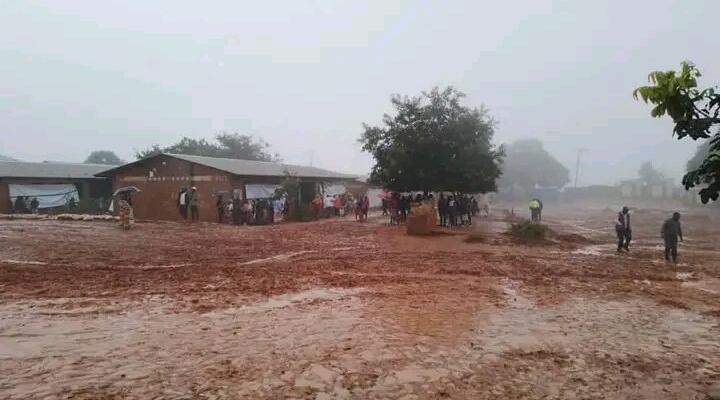
…tells Maneb to postpone exams
Education experts have questioned the temporary suspension of primary and secondary schools in southern region over the aftermath of Cyclone Freddy saying the decision should have been only applied to badly affected schools.
This comes as on Saturday, the Ministry of Education through a press statement signed Principal Secretary Chikondano Mussa, announced that it has resolved to extend further the temporary suspension of primary and secondary school classes in southern region’s ten districts.
The statement indicates that physical classes have been suspended up to 31st March 2023 when the second term ends and that classes will resume on 17th April 2023 at the commencement of the third term.
The ministry reported that rapid assessment of schools in the affected districts, shows that most structures such as classrooms and toilets are unsafe for children and that over 230 schools were being used as holding camps for internally displaced communities.
The ministry then encouraged learners to access lessons through radio and online resources which will resume on air from Monday 20th March 2023, from 08:00hrs to 16:30hrs, for both primary and secondary school throughout the period including during the Easter holiday.
However, reacting to the development, education expert Limbani Nsapato said he is agreeing with the ministry on the reasons for the extended suspension but said the ministry should have made some considerations.
Nsapato wondered why the Ministry of Education has effected the extended suspension decision on all schools in the region, yet the population of the affected schools is less than those that have been spared from the catastrophe and are in good condition for teaching and learning.
“I wish the decision was only concerning those schools that are badly affected. For those that are in good shape and access to the school is okay, I think those schools should be allowed to open and in that way it will be a win-win solution.
“Universal school closure during pandemics has negative impact not only on the time lost but also on early pregnancies. Those schools that are in good shape, teaching and learning should return, the suspension should not be applied to them. So this is something that the ministry need to clarify and consider,” said Nsapato.
The education expert has also ruled out the ministry’s alternative solution of radio and online lessons saying access to such platforms is limited to very few and said it will also be a challenge especially to learners in camps whose houses have been destroyed, property lost.
He added that the decision will affect this year’s national examination candidates and he has since asked the Malawi National Examinations Board (Maneb) to think of changing dates for exams.
“Remember that students in Blantyre and other districts were also affected by cholera outbreak earlier this year. Since we have lost time, I think the ministry of education and Maneb should consider postponing writing of these exams by at least a month or two months so that the students should have more time to prepare,” added Nsapato.
Nsapato further said since the pandemics are coming almost every year, government authorities should think of investing more in digital learning, E-learning, open distance learning or remote schooling saying that’s the only way to minimise the negative impact of these pandemics which causes indefinite closure of schools.
While acknowledging the crisis in the affected districts, Benedicto Kondowe agreed with Nsapato saying the ministry needed to spare schools that have not been affected by floods which has hit hard the southern region.
Kondowe told Malawi24 that the decision would have been further be shaped by immediate response efforts like provision of temporal structures and added that government should have made its decision pragmatically.
“Universal closure of schools in the affected districts required better justification which unfortunately is missing in the statement. It would appear that the after plan is also not clear in terms of time and teacher management; recovery of time wasted; and management of national examinations. At what point should these have been considered? I guess they should have been part of the decision making process to what is contained in the statement,” reacted Kondowe.
He further said he is of the view that levelling the playing field did not apply rather than objective test of safeguarding the right to education while at the same time helping the delayed schools in the affected districts to recover time wasted.
Meanwhile, the Independent Schools Association of Malawi (ISAMA) has through its president Wycliffe Chimwendo, echoed the calls for government to rescind the extended suspension decision.
Chimwendo has told the local media that the academic year was already disturbed by cholera and it will be further affected by the current closure.
Follow us on Twitter:














